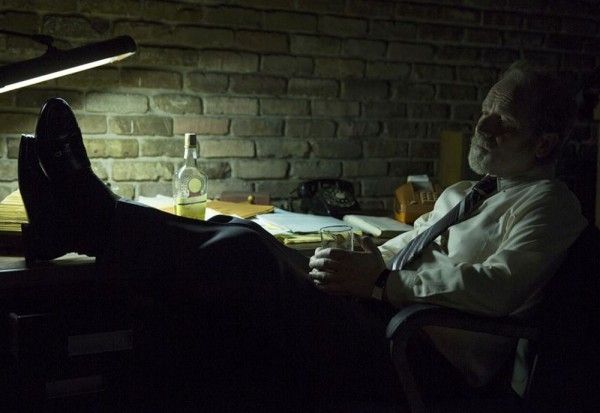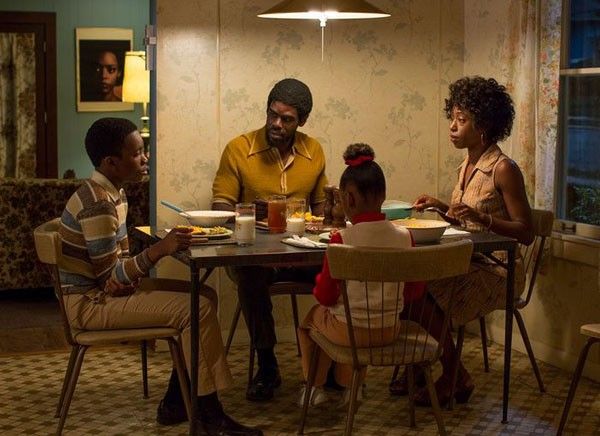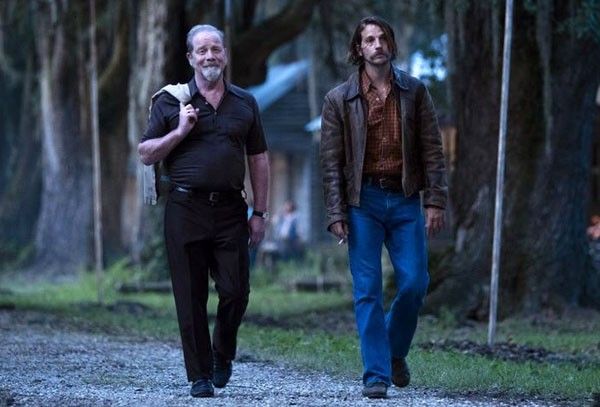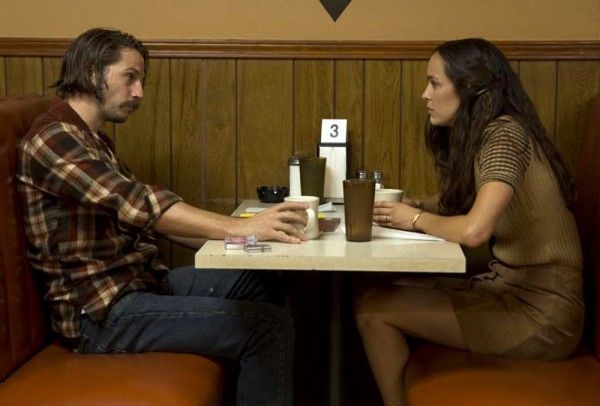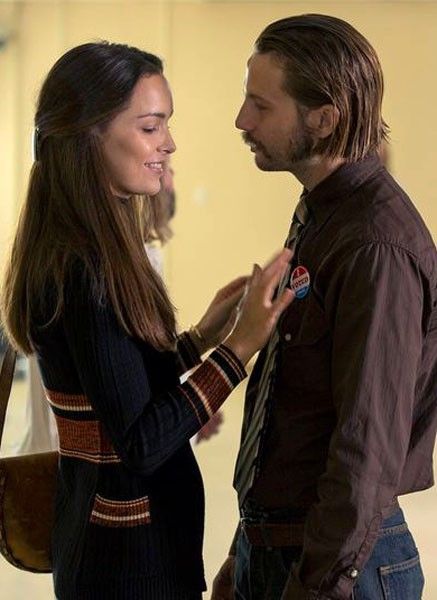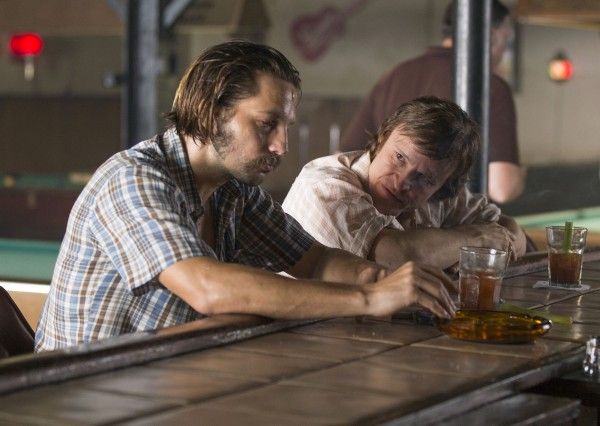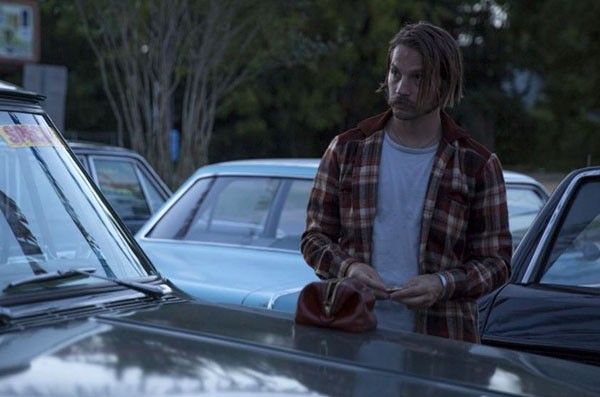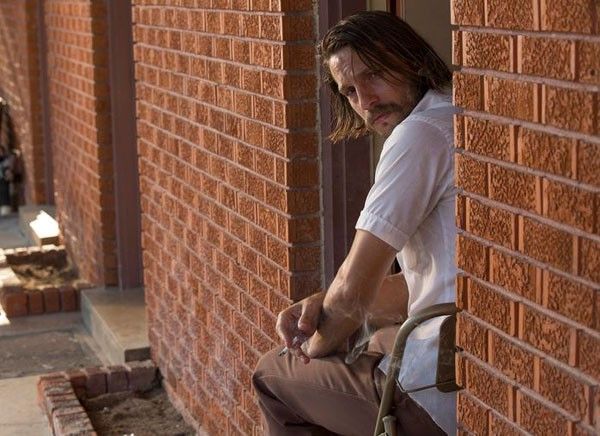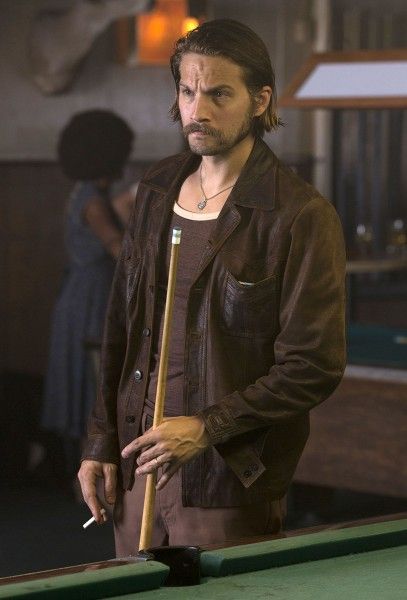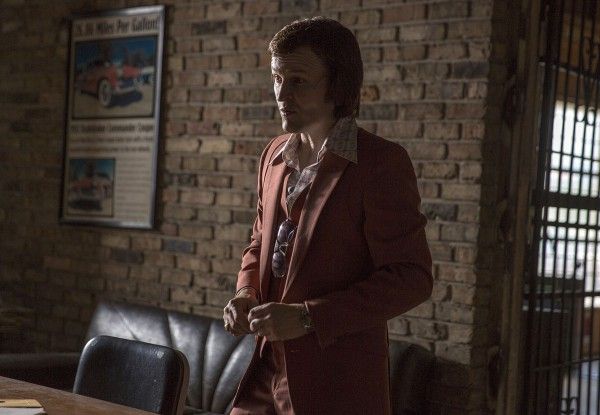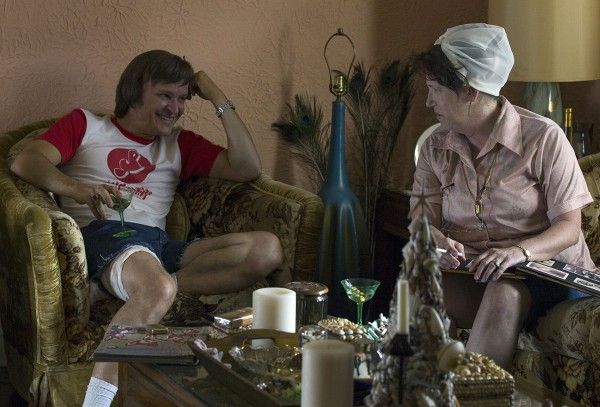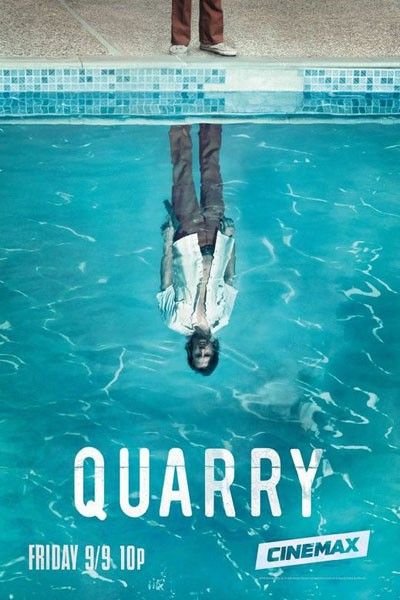On the intriguing new eight-episode Cinemax series Quarry, created by Michael D. Fuller and Graham Gordy and based on the best-selling books by Max Allan Collins, U.S. Marine Mac Conway (Logan Marshall-Green) returns home to Memphis from Vietnam in 1972, only to find himself demonized for the actions he witnessed and took part in while he was there. Struggling to make ends meet, Mac, who evolves into Quarry, is lured into an underground killing network of powerful criminals that turns his life upside down.
During this exclusive interview with Collider, showrunners Michael D. Fuller and Graham Gordy talked about why they wanted to tell this story, teaming up with Greg Yaitanes, who directed every episode of the season, the films that inspired the project’s cinematic language, what makes Mac such an interesting character, the challenges of finding the right actor for the role, and just how far ahead they’ve thought about this story.
Collider: What was it about these characters that made you want to tell this story?
MICHAEL D. FULLER: We try to always start from a place of character, first and foremost. That’s the way that we hook into a story, really. If you can come up with great characters, you can put them in a whole host of situations and it will hopefully be entertaining and engaging, and the characters really helped inform the story. And Max Allan Collins’ books, which the show is based on, gave us a great template for our main character. They start at a place where he’s already a pretty baked entity. He’s already completely formed into this hitman persona. So, we wanted to tell that origin story and talk about how he got there and what the elements in his life were that got him there. We had a lot of great tools, in terms of The Broker’s network, and it was really fun to be able to pull those different elements in and have them mash up against each other.
How did you end up teaming up with Greg Yaitanes, as the director for every episode this season, and why was he the best choice?
GRAHAM GORDY: Cinemax had bought the pilot, and then ordered back-up scripts, and then ordered a season. They had a strong and successful history with Greg, in the past, and they recommended him and brought him into the process, so we met with him and talked with him. We spent so much time researching this and working on it, and we had our go-to template, in terms of films of the early ‘70s and things that really inspired us. He really took to that and was really there to fulfill the vision of what was in the scripts.
FULLER: To get into the weeds of production a little bit, having one director allows you to cross-board, which means you can knock out a lot of aspects of the show, organizationally, in a way that you couldn’t do, if you were doing it episodically or shooting in blocks. The affinity that Greg had for the films of the era, that were also touchstones for us, gave us a shared touchstone to really draw from. As you’re moving forward, it helps to move swiftly and deftly because it’s more focused, in terms of the brain trust of Quarry.
GORDY: We had a long and detailed prep, and didn’t have to stop and start throughout production to acquaint or reacquaint different directors with each episode, the nature of the show, or the tone of the show.
FULLER: Greg really helped to form a cinematic language that’s unique to this show. TV is becoming more and more cinematic, and I think what our show does really well is that cinematic doesn’t just mean sweeping, grand, epic crane shots. It can mean a different language of cinema that pulls from different eras of cinema, and then homogenizing that into our own thing.
What were the films that inspired you?
FULLER: The ones that we kept coming back to were The Friends of Eddie Coyle with the great Robert Mitchum, which is a blue collar crime film, Straight Time, which may be Dustin Hoffman’s best performance, and Scarecrow.
GORDY: I imagine that it’s the way people are going to look back at cable and streaming television right now. There are all of these movies that everybody knows because they won Oscars, but if you look at the depth of how many great films were made during that era, there are so many great films. We just immersed ourselves, as much as possible.
FULLER: And then, there are the Melville noir films of the ‘50s and ‘60s, which we looked at because they all have a tragic figure at the center of them who’s lived a life of criminality and has some kind of awakening about it, and then usually comes to a tragic end, trying to set it right. But really, those films of the ‘70s, a lot of which are almost completely forgotten within history, are great. Dog Day Afternoon is another one. It was a great film education, but it also really informed the tone and feel of the show.
GORDY: And we use writing as a great excuse to do research. Everything takes us a lot longer because we’re like, “Have you seen this movie? We can’t write another page until we see this movie!”
FULLER: “I found these three books that are all about one scene that we’re writing, and we have to read each one!”
GORDY: It’s procrastination through something that we hold up as being completely pivotal.
Mac is an interesting character to center a show around because he’s not a good guy and he’s not really a bad guy, but he’s just a guy trying to figure out how to live his life and make it through to the next day. What was it about him that made you think he had a story worth telling?
FULLER: You just described it beautifully. There are obviously anti-heroes on television and there are obviously heroes on television, but so many times, that becomes a catch-all metric for things. What if it’s just a person? There’s no greater portrait of heroism than serving in the military. And then, there’s no greater portrait of villainy than killing people for money. Most people aren’t living in one of those two extremes, but a guy who has lived in both and is just a man trying to figure out his way, morally, emotionally and socially, was really interesting to us. We wanted to make it grounded in every man who is trying to live in both of these places, disillusioned by the heroism he thought he was going to have and didn’t obtain, and then being simultaneously horrified and thrilled by the bad things he’s doing, and he’s trying to reconcile those two differences. We’ve all been disillusioned at times in our lives. We’ve all been faced with darkness, as it were, and could have made choices, one way or the other. Most of them wouldn’t have led to killing people for money, but you never know. The domino theory could take you there. But to us, finding a guy that people could relate to on a human level, and then putting him into these extreme situations was something we thought would be exciting to explore, at this time in American history and in this region of America. That’s a very specific experience.
GORDY: There’s a section of the book What It Is Like To Go To War, by Karl Marlantes, where he talks about how one of the great catalysts of someone suffering for PTSD is essentially being raised in a moral society, and then all of a sudden being trained to become a killer, being shipped overseas, and having your entire moral code that you’ve been taught completely undermined and changed, where killing becomes something that you should do to be a good American. And then, at some point, you find out that you’re going to be flying back to the United States and you have to reacclimate and reimmerse yourself in a society that abides by your original moral code. That was a huge part of when we were like, “Okay, we may have a show.” When we read the Max Allan Collins, which were written in the early ‘70s, was that this is a guy who was suffering from PTSD, even if he didn’t know that he was. There wasn’t an acronym for it, at the time. So, that was a big part of us trying to get into the head of a character who’s suffering from something that he is tormented by, but has no idea what that is or why that’s happening. That’s something that was really interesting to us, and was one of the main catalysts behind writing this guy.
FULLER: How do you even begin to process that experience and get to that emotional breakthrough or acceptance of what you’ve experienced? At that time, and even still, there wasn’t much encouragement of men to talk about their feelings and express their emotions. There is a better support system now for soldiers who are coming home, although it still needs to be improved upon greatly. Then, men were not supposed to talk about their feelings. Doing so would also acknowledge that you had done something wrong, in some way. Even though that’s not true, that was the mentality of a man, at that time. Vietnam was the first war that America lost, and so much of the blame for that, in this country, was laid at the feet of the soldiers, themselves, who were fighting it, but who weren’t responsible for making the strategy decisions. They put a human face on it, for people who were angry or upset about it, and there was an inherent shame in that.
What were the challenges in finding an actor that could not only bring to life everything you wanted to actually convey, but also all of the underlying stuff, as well?
FULLER: It was tough. It wasn’t easy. We knew this character had a very turbulent interior emotional life, but he didn’t necessarily have the emotional language to express or deal with it. He also had to be someone who had a certain type of swagger, of that era and region, and who seemed capable, in that way, but could also be charming when they needed to be. That’s a really tough thing to find.
GORDY: There are a lot of exceptional actors out there, but there are very, very few in 2016 that have swagger. When we found Logan [Marshall-Green], it felt completely right. We’d seen him in plenty of other stuff before, and he’s an exceptional actor on stage and screen, but there’s also just an attitude about him. One of the reasons he plays it so well is because you can see his defenses so clearly and you can see how much he’s repressing until he’s nearly suffocating under it. That’s not an easy thing to play. When we found Logan, we were like, “Okay, this is the guy.”
FULLER: He’s someone who brings his lunch pail and his hard hat, every day. He’s someone who’s up all night, doing his homework in the library. He worked really, really hard. I think there was a real sense of artistic kinship, collaboration and comradery with him because he does as much research, from his character’s perspective and from the world of the show’s perspective, as we do, which is really rare to find. A lot of actors just want to punch the clock, hit their mark, say their lines, and go back to their trailer. Logan wants to understand what’s going on with the story, as a whole, and with the character, as a whole, and really dig in. This is a character and a subject matter that we take extremely seriously, and it was great to find someone who had those sensitivities and considerations for what we’re dramatizing. It’s hard to find someone who can both exude a certain type of intelligence and also a masculinity. Those two things tend to be incompatible with a lot of casting. He’s just a guy. He’s not all one thing or all another, and Logan can bring the depths of conveying that without saying a word.
How far ahead have you thought about this show, and how many seasons do you think you’ll need to completely tell this story?
FULLER: I think about 80 seasons. We want to get him to present day. No. What’s great about the process is that you have to really think about future seasons and where you want to go. We want to really showing this character’s emotional journey, from where we started from with him becoming untethered through the ups and downs of what he’s doing.
GORDY: When you’re trying to sell a show and get a show on the air, they ask you to talk about five seasons, and around that is what we’ve laid out. We have thought a lot about it, especially in terms of Mac’s arc and story, and Joni’s arc. I think there are potentially a lot of tunes in this piano.
Quarry airs on Friday nights on Cinemax.


